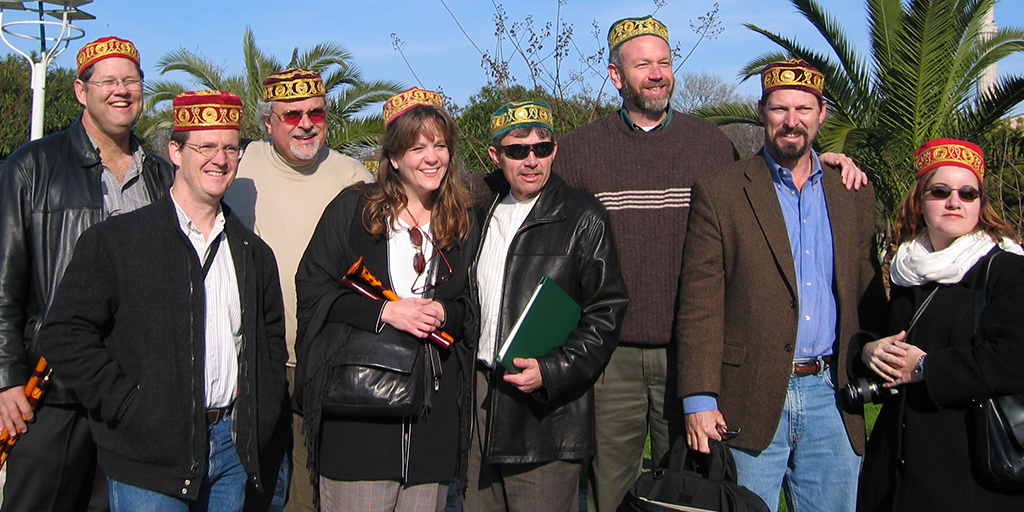New book recounts Baylor professors’ service in Iraq a decade ago

A little-known story of Baylor service: Between 2003-07, teams of Baylor professors and other volunteers made five trips to Iraq to help their fellow educators rebuild following the rule of Saddam Hussein. Led by Dr. Bill Mitchell, an Emeritus Professor of Political Science and retired U.S. Air Force officer with vast Middle East experience, the teams braved wartime conditions to help Iraqi universities start anew, sharing both their expertise and their resources with college and universities halfway around the world.
The Baylor teams’ efforts are chronicled in Mitchell’s new book, Baylor in Northern Iraq During Operation Iraqi Freedom. Mitchell, who led Baylor’s Center for International Education from 2000-07 after retiring as an Air Force colonel, describes how he and 22 others strove to serve in a unique way, giving Baylor a presence in Iraq that was, at the time, unmatched.
“At Baylor, ‘love they neighbor’ are not just words,” Mitchell says. “So many stepped up during these tragedies to help in any way possible, to help our neighbors in Iraq restore their institutions of higher learning.”
Earlier this fall, Mitchell and four colleagues who also went to Iraq — computer science professor Cindy Fry, Director of Middle East Studies Mark Long, PhD ’01, journalism professor Brad Owens, BA ’82, and nursing professor Lyn Prater — reminisced about their time there at an on-campus panel discussion.
Their experiences centered around Duhok and other cities in Northern Iraq. There, they worked alongside both Kurdish Muslims and Christians to serve and rebuild. They stress they visited not as “American heroes,” but rather as collaborators who talked to educators, students and civilians in the area to find out what needs could be met.
Hundreds of professors and students had been targeted and killed, and schools like the University of Duhok and the University of Mosul suffered devastating losses. The director of the computer lab at Mosul showed the Baylor team his lab, which once featured 4,000 computers, was down to just 25, all of which were donated by Baylor professors. “I feel,” he told them, “like I watched 25 years of my life perish the night the looters set fire to the computer center.”
In addition to leading educational workshops, Baylor professors provided and arranged for computers, books, educational tools and more to help universities re-stock. The Bears also conducted oral history interviews, assisted in projects as requested by Iraqi educators, provided humanitarian assistance, and helped establish the Center for Democracy and Human Rights at the University of Duhoq.
“The friendships we built there have lasted, even now 10 years after we last visited,” Mitchell says. “We continue to correspond, and some Baylor professors still send materials and partner with them sometimes. I’m thankful that Baylor was so open to undertaking a risky, but important project, and that so many Baylor colleagues joined in to serve.”
Sic ’em, Dr. Mitchell and Baylor professors!

